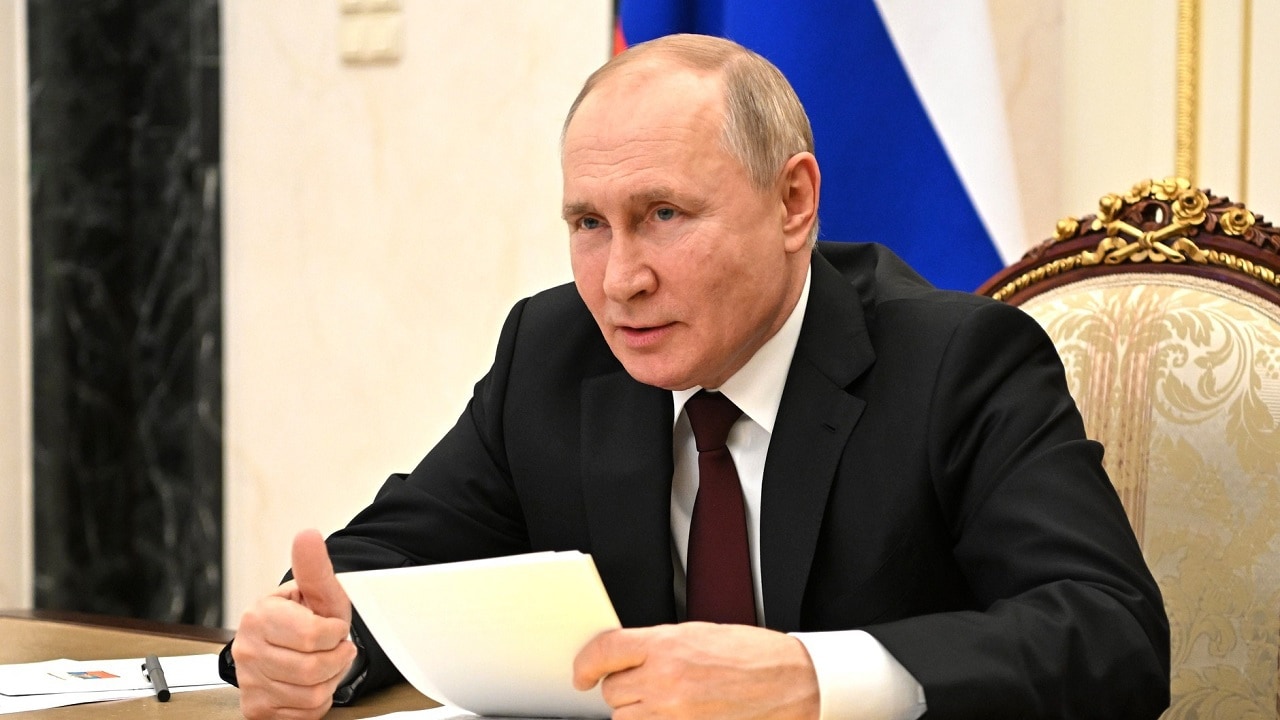Gen. Christopher Cavoli, the head of U.S. European Command, told the House Armed Services Committee on Wednesday that while Russia has lost thousands of troops in the war in Ukraine, the Russian ground force is technically bigger than it was at the beginning of the conflict.
“The Russian ground force has been denigrated somewhat by this conflict, although it is bigger today than it was at the beginning of the conflict,” Cavoli told the House Armed Services Committee.
“The Air Force has lost very little, they’ve lost 80 planes. They have another 1,000 fighters and fighter bombers,” he said, adding that the Russian Navy “has lost one ship.”
Cavoli’s comments sparked debate online, with skeptics questioning how ground forces could have been impacted while growing at the same time. Since the beginning of the Russian invasion of Ukraine, the Russian military has experienced several major setbacks and embarrassments, lost as many as 43,000 troops on the battlefield, and resorted to using decades-old weapons and tanks because of a shortage of modern weapons.
At the same time, however, Russia’s military leaders have refrained from using some of the country’s most advanced fighter jets and weapons over fears of losing them on the battlefield. For this reason, among others, Russia has both lost weapons and troops at the same time new advanced weapons, including fighter jets and tanks, were being added to its military’s arsenal.
By using older military equipment and recruiting hundreds of thousands of new soldiers, Russia has offset much of its losses and remains militarily active elsewhere in the world. When asked about Russia’s frequent submarine patrols in the Atlantic Ocean, Cavoli acknowledged that most of Russia’s military “has not been affected negatively.”
Cavoli said that, rather than being less active, the Russians are actually “more active than we’ve seen them in years.” The U.S. official described how Russian patrols in the Atlantic are at a higher level than the world has seen for many years.
“And this is, as you pointed out, despite all of the efforts that they’re undertaking inside Ukraine,” he added.
A New Ukraine Strategy Needed?
While Russia may not have lost most of its advanced weapons in the Ukraine conflict, there remains a series of major issues for the Russian military on the ground in Ukraine.
In a Telegram post, Russian correspondent Alexander Sladkov offered a look at how the Russian military has utilized its infantry on the battlefield so far and outlined major issues with how military leaders have approached the war so far. The Russian journalist described how, traditionally, Russia’s infantry has relied heavily on armored vehicles, therefore requiring fewer heavy weapons and smaller squadrons.
By using these old tactics, he said, the Russian army has endured heavy losses unnecessarily. With this in mind, Sladkov suggested a full review of the role of both transport and armored vehicles and argued that the Russian special forces should be used for their intended role, rather than being deployed alongside naval infantry on the battlefield – as is presently the case.
In the post, Sladkov said that large air and sea landing operations have proven impossible against Ukrainian forces armed with modern weapons, forcing Russia to use Airborne Forces, special forces, and Naval infantry as “motivated and mobile infantry.” That strategy, Sladkov said, previously helped Russia in local wars but cannot work on this large a scale.
“The solution that saved us in local wars,” Sladkov writes. “However, the scale of hostilities played against us, there is not enough elite for the entire front. And their intensity, at which the loss of manpower is great, and the elite is ‘sharpened’ in battles. In addition, if the Marine Corps, due to its organizational structure, is more or less adapted to all-army battles, the Airborne Forces and SpN were not prepared for this and not for this.”
At the end of the post, Sladkov suggests that the Kremlin must “get rid of the heavy legacy of local wars” and the tactics of the 1990s, when Russia “tried to preserve old units and constantly spawned new ones, doubling their tasks and confusing subordinate structures.” The Russian journalist said that the approach must be applied not just to the Russian army, but also to “other power structures that were forced to perform long-term tasks that were not theirs.”
Until then, he said, Russia cannot “normalize the command, control, and planning of major operations” on the battlefield.”
MORE: The F-35 Now Comes in Beast Mode
MORE: Why the U.S. Navy Tried to Sink Their Own Aircraft Carrier
Jack Buckby is 19FortyFive’s Breaking News Editor. He is a British author, counter-extremism researcher, and journalist based in New York. Reporting on the U.K., Europe, and the U.S., he works to analyze and understand left-wing and right-wing radicalization, and reports on Western governments’ approaches to the pressing issues of today. His books and research papers explore these themes and propose pragmatic solutions to our increasingly polarized society.

